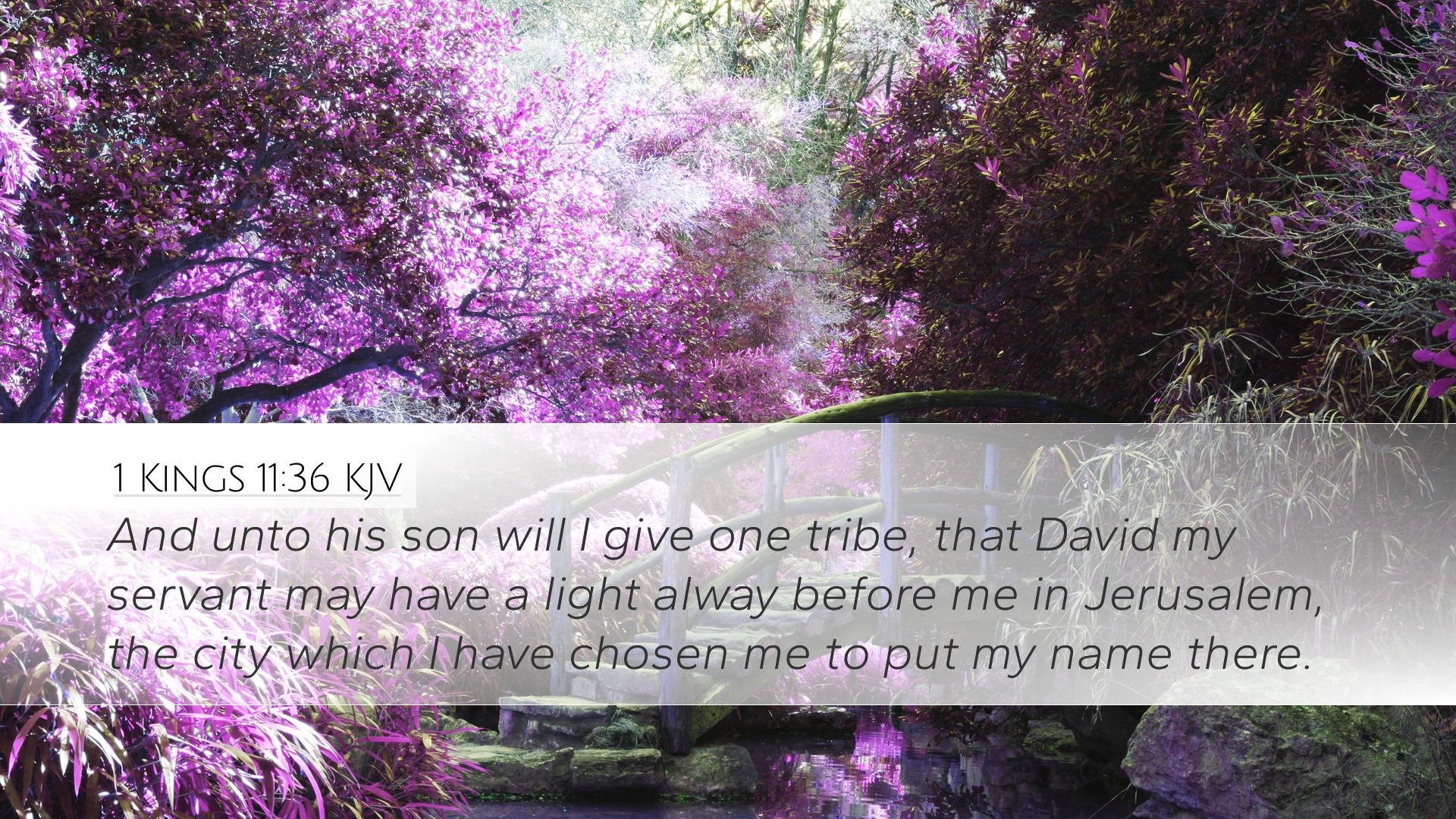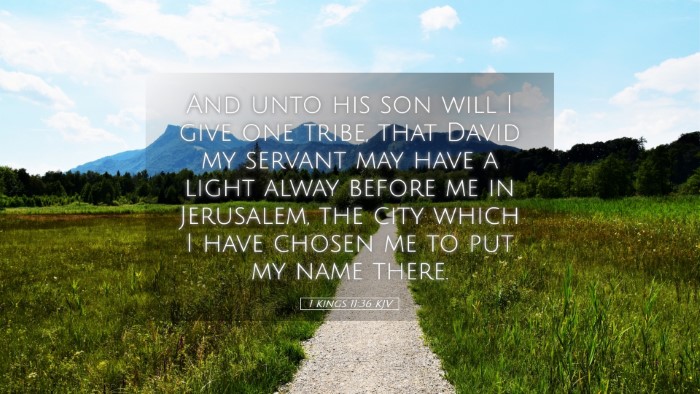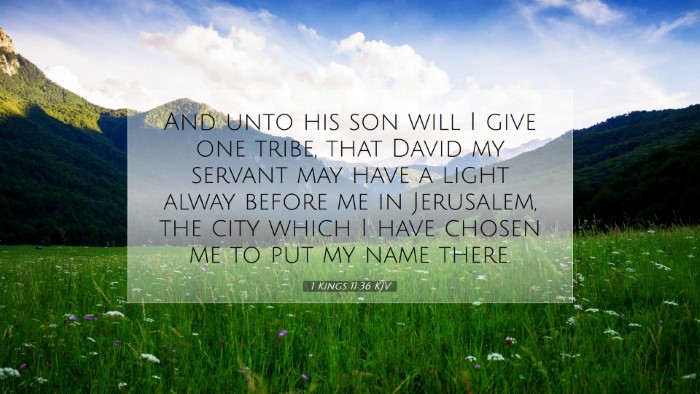Commentary on 1 Kings 11:36
Verse Text: "And unto his son will I give one tribe, that David my servant may have a light alway before me in Jerusalem, the city which I have chosen me to put my name there."
Introduction
The narrative context of 1 Kings 11:36 comes at a pivotal moment in the history of Israel, where the decline of Solomon's reign introduces a transition that affects the monarchy and the nation’s identity. This verse speaks of God's sovereign choice and the promise of continuity through David's lineage amidst the chaos of division.
Theological Significance
This verse emphasizes God's faithfulness to His covenant with David, showcasing His unwavering commitment despite Israel's disobedience. It serves as a theological anchor that highlights the grace of God, where He continues to preserve a remnant for His name's sake.
God's Sovereignty
Albert Barnes notes how God's selection of a tribe for David’s descendants illustrates profound sovereignty. It reminds us that God upholds His intentions even when human choices lead towards fragmentation and despair.
David's Legacy
According to Matthew Henry, this verse reassures of the eternal legacy of David, wherein his lineage is not to be eradicated. Here, David is seen not merely as a historical figure but as an archetype of faithfulness that encompasses God’s plan for Israel and, ultimately, the greater plan of salvation through Christ.
The City of Jerusalem
Adam Clarke elaborates on the significance of Jerusalem, the city chosen by God to place His name. This serves as a focal point for worship and God's presence among His people. By selecting one tribe to serve the Davidic line, God ensures that Jerusalem remains central to His covenantal promises.
Contextual Analysis
This verse must be understood within the context of Solomon's apostasy. The preceding chapters reveal how Solomon's idolatry led to God's discontentment. In response, God announced the division of the kingdom. Yet, in judgment, He also extends grace, reflecting that His plans are not thwarted by human failings.
Judgment and Mercy
- Judgment: The narrative indicates that despite Solomon’s greatness, his actions prompted God’s judgment. The kingdom would be split, a consequence of his polygamy and idols.
- Mercy: However, through this verse, there remains a promise of mercy in the preservation of one tribe for David, illustrating God's overarching grace in judgment.
Practical Applications
This passage offers rich insights for those engaged in pastoral care, theology, and personal devotion:
- Faithfulness in Leadership: Leaders are reminded of the importance of fidelity to God, as the actions of Solomon lead to consequences that extend beyond his reign.
- Hope Amidst Chaos: The promise of God’s continued work through the lineage of David encourages believers that God can work through difficult and chaotic circumstances.
- Covenant Relationship: It reinforces the concept that through covenant relationships, God seeks to establish His kingdom and fulfill His promises, both historically and eschatologically.
Conclusion
1 Kings 11:36 encapsulates the dual themes of judgment and promise, showing God's fidelity in the face of human failure. Through the preservation of David's line and the significance of Jerusalem, it offers profound theological insights pertinent for pastors, students, theologians, and scholars alike. It affirms that though human actions can diverge from God’s commandments, His plans will not be thwarted, and He remains committed to fulfilling His divine purposes.


